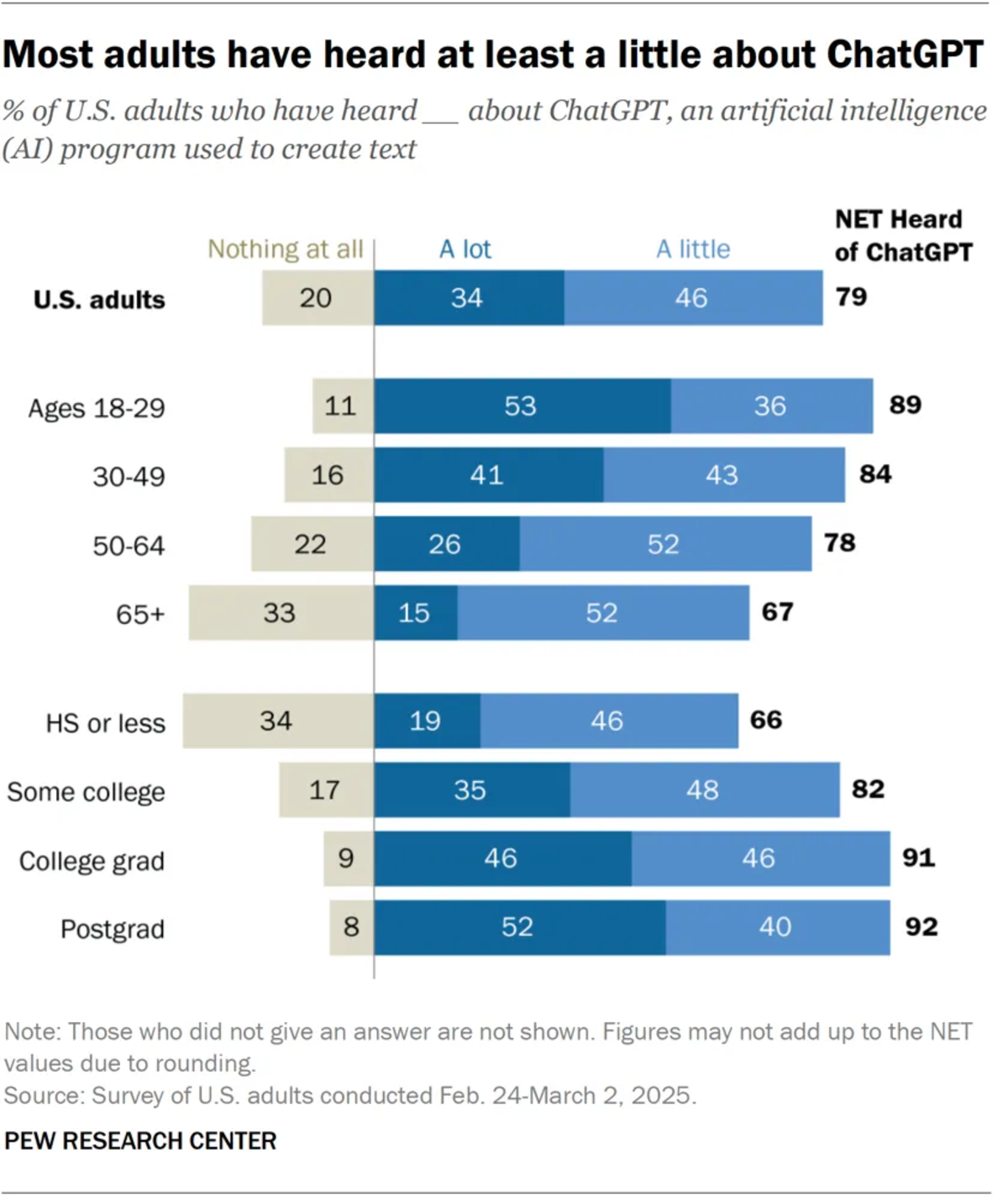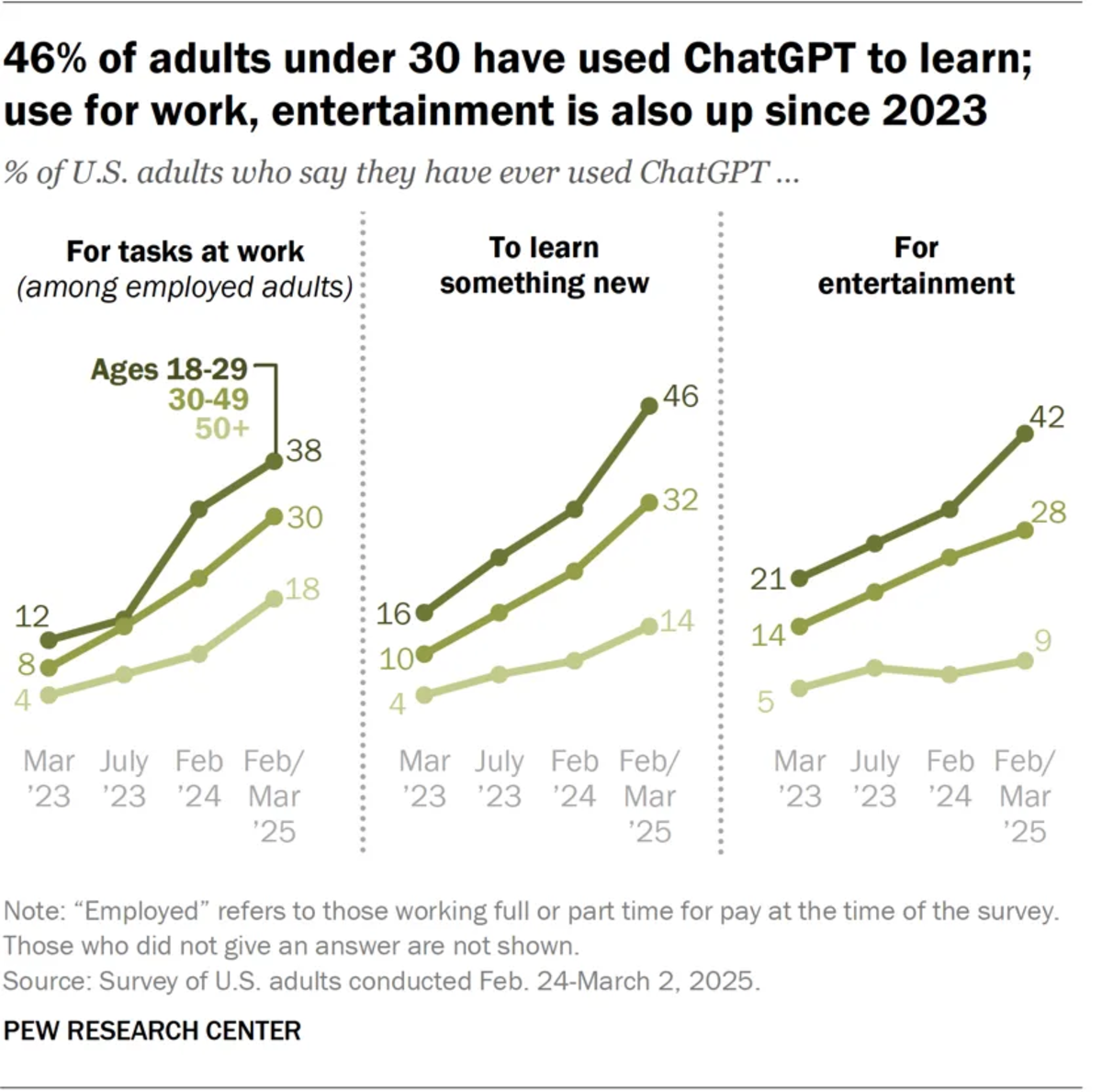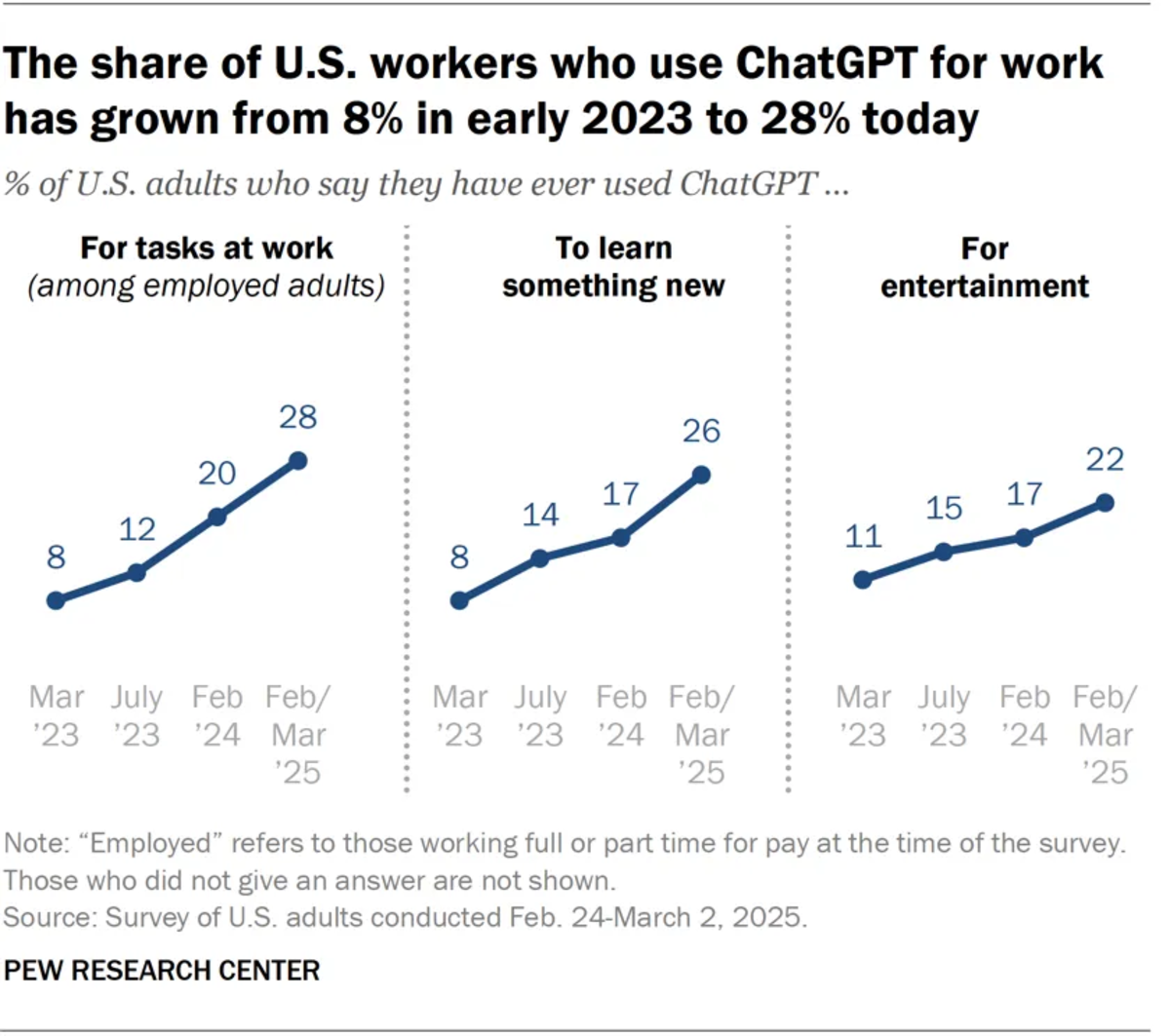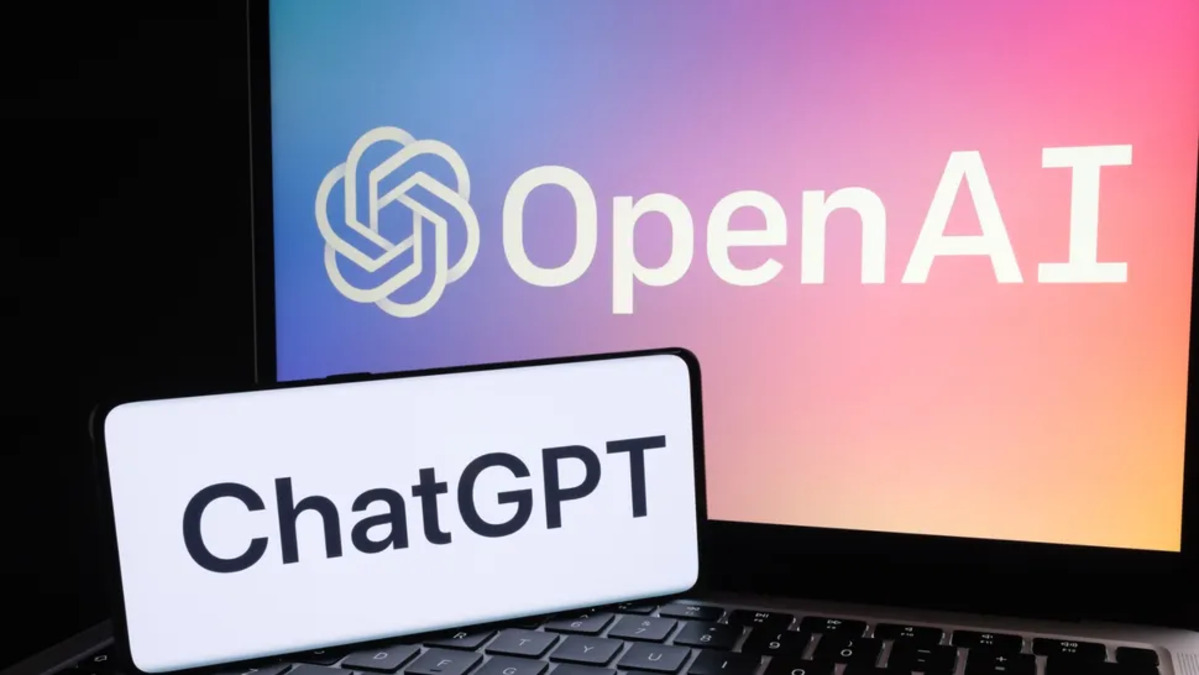At a time when artificial intelligence is the talk of the world, new figures reveal a strange paradox: one in five Americans has never heard of ChatGPT, despite its rise to prominence in the tech world.
This gap was one of the most striking findings of a recent Pew Research Center study , which showed that 20% of Americans are unaware of ChatGPT. This percentage rises even further among those over 65, reaching 33%, and among those with a high school education or less, reaching 34%.

Despite this gap, OpenAI’s model is spreading rapidly. The study found that 34% of US adults have tried it, double the figure two years ago, particularly among young adults. The figure dropped to just 10% among older adults.

Education makes a difference
The study links the widespread use of ChatGPT to education, with more than half of those with college or higher degrees using it, compared to just 18% of those who did not complete their education beyond high school.
Regarding the reason behind users’ interest in the app, the study indicated that ChatGPT has become a ubiquitous feature in many people’s lives. About 28% of workers admitted to using it for work, up from just 8% in March 2023. The percentage of those using it for learning also rose to 26%, up from just 8% two years ago. For entertainment, the percentage increased from 11% to 22%.

greater awareness
Regarding users’ familiarity with the world’s most popular AI model, the study notes that the number of people who had heard of ChatGPT increased from 58% in March 2023 to 79% now. Of these, 34% said they knew a lot about it, particularly among younger people.
A report by the tech website CNET cites a separate study conducted by Menlo Ventures , which showed that 61% of Americans have used AI tools in the past six months, and that 19% of them interact with these technologies daily. ChatGPT was particularly popular, with 28% choosing it as their preferred tool, followed by Google’s Gemini model at 23%.
However, what is striking, according to the report, is that some employees admitted to feeling nervous about the idea of using AI tools at work, fearing that their colleagues or managers might consider them incompetent, despite their assertion that these tools actually help them complete their work more quickly.

